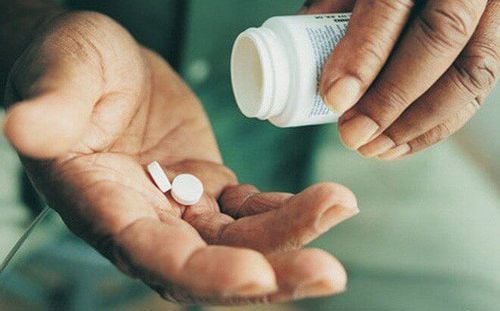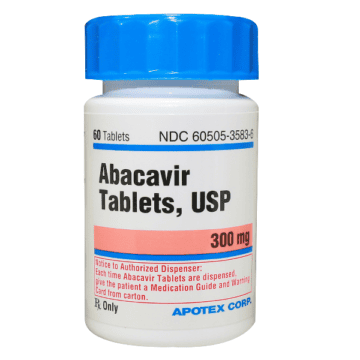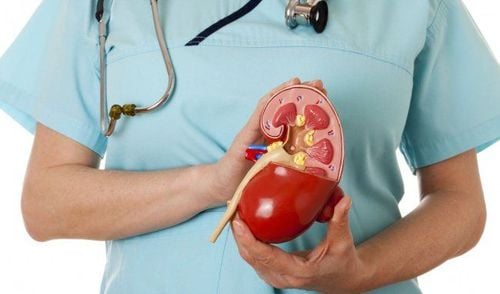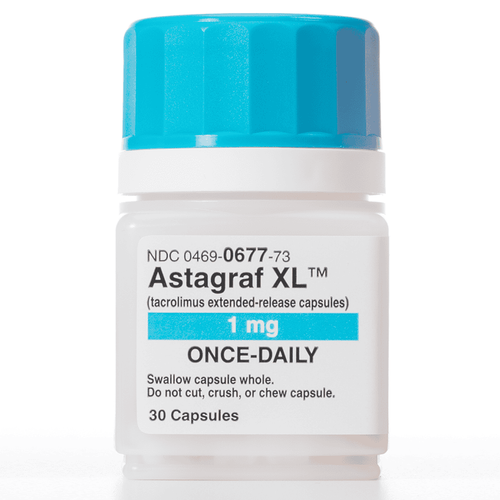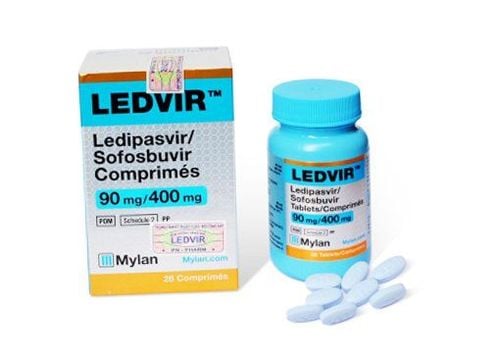This is an automatically translated article.
Article written by MSc Nguyen Thi Thanh Thuy, Endocrinologist - Dialysis - Kidney Transplant, Vinmec Central Park International General Hospital.
Chronic kidney disease (CKD) is a condition characterized by a gradual decrease in kidney function over time.
1. What is chronic kidney disease (BTM)?
Chronic kidney disease is a condition in which your kidneys are damaged and their ability to function is reduced to help you stay healthy. If the disease is advanced, waste products from the body that are not filtered by the kidneys will build up in high concentrations in your blood and cause a medical condition. You may also have complications such as high blood pressure, anemia (low red blood cell count), weak bones that break easily, poor nutrition, and neuropathy. Plus, kidney disease increases your risk of heart and blood vessel disease. These problems progress slowly over a long period of time. Chronic kidney disease can be caused by diabetes, high blood pressure, and other disorders. Early detection and treatment can help slow the progression of kidney failure to severe failure. When kidney disease progresses to end-stage renal failure, you need dialysis or a kidney transplant to stay alive.
2. The truth about chronic kidney disease (BTM)
1 in 10 people have chronic kidney disease or risk of chronic kidney disease in the population. Early detection can help prevent kidney disease from progressing to kidney failure with intervention. Cardiovascular disease is the major cause of death in most patients with CKD.

Nguy cơ tim mạch làm tăng nguy cơ tử vong ở hầu hết bệnh nhân có BTM
Glomerular filtration rate (GFR) is used to estimate kidney function. Hypertension causes CKD and CKD causes hypertension. Prolonged proteinuria (protein in the urine) is synonymous with CKD. Groups of patients at high risk of CKD include diabetes, hypertension and family history of kidney disease. Two simple methods help detect kidney disease: measuring blood pressure, measuring albumin in the urine, and measuring creatinine in the blood.
3. Causes of BTM?
There are two main causes of chronic kidney disease today, hypertension and diabetes, which are responsible in two-thirds of cases. Diabetes occurs when your blood sugar is too high, damaging many organs in your body, including your kidneys and heart, as well as your blood vessels, nerves, and eyes. High blood pressure, if uncontrolled or poorly controlled, causes heart failure or other heart diseases, stroke, and CKD. However, BTM also causes high blood pressure, a consequence of salt and water retention in the body.
Other conditions that can also affect the kidneys include:
Glomerulonephritis, a group of diseases that causes inflammation and damage to the kidney's filtering units. These disorders are the third leading cause of chronic kidney disease. An inherited disease, such as polycystic kidney disease, is a condition where large cysts form in the kidney and damage surrounding tissue. Congenital abnormalities of the urinary tract. This condition causes obstruction of urine flow, gradual hydronephrosis and loss of function if left untreated. Kidney disease caused by an autoimmune disease (lupus...). Urinary tract obstruction due to stones, tumors or enlarged prostate in men
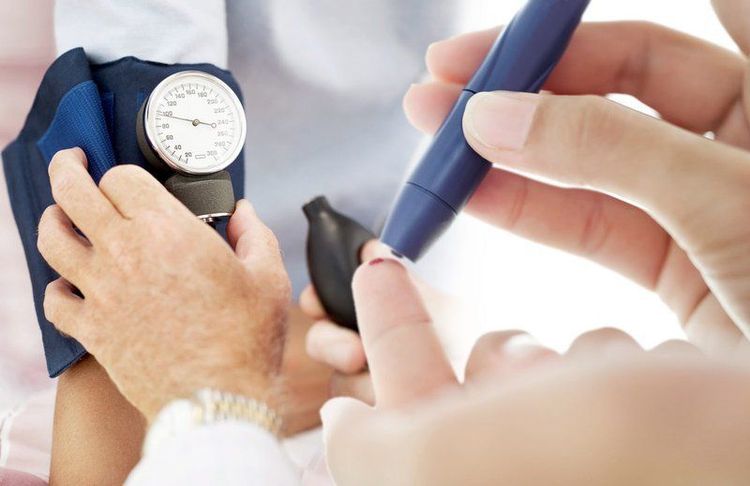
Tăng huyết áp và tiểu đường là hai nguyên nhân chính gây ra bệnh thận mạn
4. What are the symptoms of BTM?
Most patients have no symptoms until kidney disease is advanced. However, you can watch out for the following:
Feeling tired or having no energy Having problems concentrating Have a poor appetite Having problems sleeping Having cramps at night Swollen feet, eyes ankles Swelling feeling around the eyes, especially in the morning Dry skin, itchy skin Frequent urination, especially at night. Anyone can get BTM at any age. However, some people are more prone to BTM than others. You may be at increased risk for CKD if you have:
Diabetes High blood pressure Family history of kidney disease Older age
5. Understanding glomerular filtration rate (GFR)
GFR—glomerular filtration rate, glomerular filtration rate is the best way to measure your kidney function and stage CKD. Your doctor can calculate your GFR from your blood creatinine test results, age, race, sex, and other factors.
If kidney disease is detected at an early stage and treated, your kidney disease has a good chance of slowing down its progression or even stopping it.
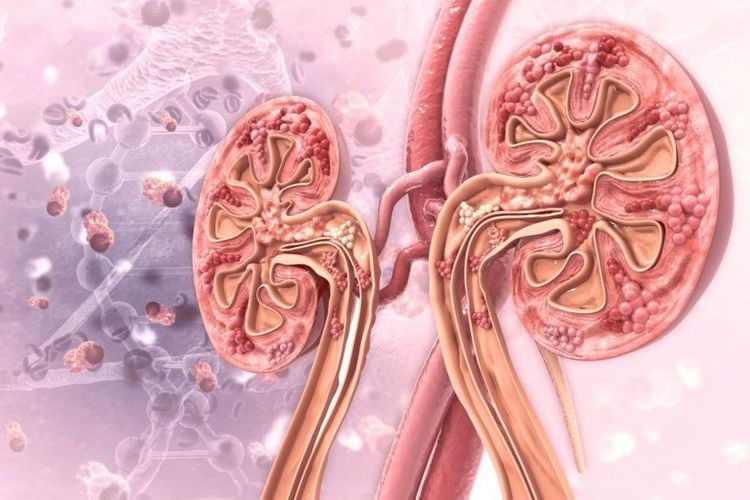
Độ lọc cầu thận là phương pháp tốt nhất để đo chức năng thận
6. What should I do if my exam and test results show CKD?
Your doctor will give you more in-depth tests to diagnose the cause and provide treatment. The doctor may order:
Do more intensive blood and urine tests. Get an ultrasound or CT scan of your abdomen to look at your kidneys and urinary tract. These images help detect whether your kidneys are too large or too small, have stones, tumors, hydronephrosis, or structural abnormalities of the kidneys or urinary tract. Performing a kidney biopsy , which is done for some special cases of kidney disease, helps to know the exact type of glomerular disease and to plan treatment if indicated. During a kidney biopsy, the doctor takes a piece of kidney parenchyma and looks at it under a microscope. The Department of Endocrinology - Diabetes - General Internal Medicine - Vinmec International General Hospital is a prestigious and quality address specializing in effective treatment of pituitary - thyroid - adrenal gland diseases and diabetes.
The hospital owns modern facilities, full of medical equipment and advanced machines, helping to test and diagnose diseases. Doctors come from major hospitals across the country, are well trained In-depth, experienced version helps to treat the disease effectively, shortening the treatment time. If you have a need for consultation and examination at Vinmec Hospitals under the national health system, please book an appointment on the website for service.
Please dial HOTLINE for more information or register for an appointment HERE. Download MyVinmec app to make appointments faster and to manage your bookings easily.




